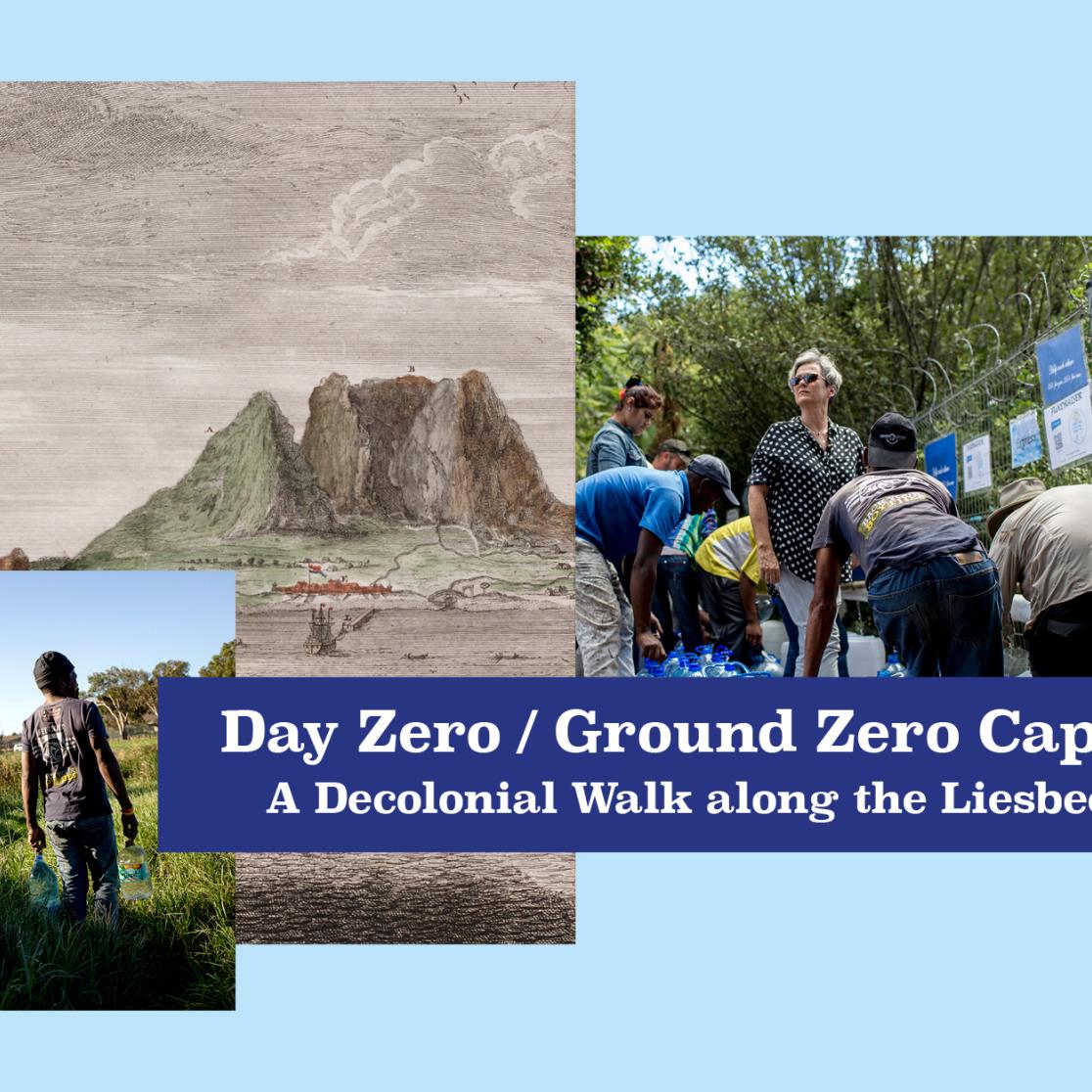Christian Ernsten has launched the online exhibition ‘Cape Town Day Zero/Ground Zero: A Decolonial River Walk‘.
This online exhibition tells a story about a river in Cape Town, South Africa, about its colonial past and its Anthropocene future. It centers on the water course of the Liesbeek River, because this river’s heritage encapsulates—in the words of the Goringhaicona Khoi KhoiIndigenous Traditional Council High Commissioner Tauriq Jenkins—Cape Town’s ‘Ground Zero’, the place where colonial dispossession began.
The exhibition covers a 9 km–long walking investigation into the intimate link between imperial conquests and the Anthropocene exploitation of beings, species, and territories in former colonies such as South Africa. As a kind of walking companion, or a historical interlocuter, we walk the river with Peter Kolb (1675–1726), the first known scientific explorer of the Cape of Good Hope. During the first decennia of the 17th century, Kolb mapped and described the Cape landscape, its rivers, and its people. The University Library Special Collections Department holds a beautiful copy of Kolb’s work.
Travel writing about the Cape of Good Hope is in many ways exemplary for colonial travel writing. As a result of scientific travel and the desire for inland colonial expansion to the Cape, it became a place where shifting relations between locals and newcomers played out with particular dramatic force. While walking and reading his work, we confront the question: What would constitute a decolonial reading of Cape Town’s river landscape?
Cape Town Day Zero/Ground Zero: A Decolonial River Walk is an online exhibition project for the Maastricht University Arts & Heritage Committee by Christian Ernsten in collaboration with students Lucinda Maitra, Pepijn Smits, Reanda de Beer, Zoë Zanello and Brendan Harris as well as Cecile Schulte of the Master Arts and Culture, specialization Arts and Heritage, Maastricht University.
Research and text: Christian Ernsten
Photography: Dirk-Jan Visser
Online exhibition design: Erik Wong
Web development: Ivo Kruchten
With special thanks to: Nick Shepherd, Annemieke Klijn, Odin Essers, Gcobani Sipoyo, Amber Abrams and Vivian van Saaze
This project is made possible with the support of the Maastricht University Arts & Heritage Committee, Maastricht University Library, Maastricht Centre for Arts and Culture, Conservation and Heritage (MACCH), and the University Fund Limburg/SWOL

Also read
-
Andrés Caceres Solari on No room for Human Rights in Gaza and Ukraine: How the Law Legitimizes Urban Devastation
Pick Our Brains Session with Andres Caceres Solari

-
AMIBM hosts the final Realise-Bio conference
The Aachen Maastricht Institute of Biobased Materials (AMIBM) hosted last week the third and final Realise-Bio annual conference, bringing together the Dutch and German bioeconomy ecosystems at the Brightlands Chemelot Campus.

-
Macrophages as key to treating liver fibrosis
Sabine Daemen is researching how certain macrophages can slow down fatty liver disease and fibrosis in order to develop new therapies.
